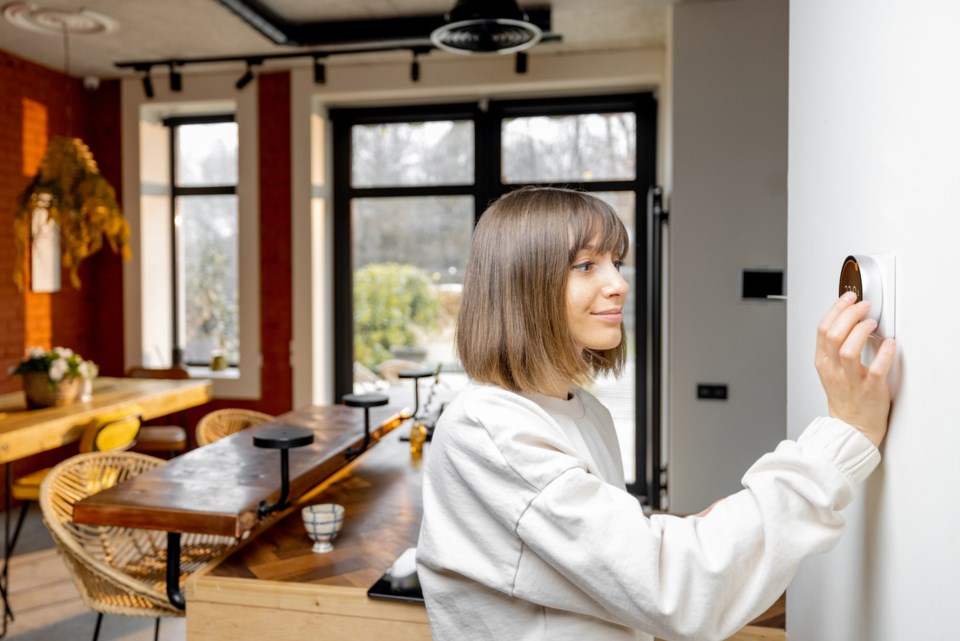Today's conscious consumer knows that eco-friendly living extends beyond reusable shopping bags and electric cars. One of the most significant impacts you can make is transforming your living space into an eco-friendly haven. While this might sound expensive upfront, it’s crucial to understand that eco-friendly living and long-term savings often go hand-in-hand. When it comes to financing your green home, understanding mortgage rates can give you a comprehensive picture of the potential for significant long-term savings.
Air quality and health benefits
Clean air isn't just an outdoor concern. Our homes can harbor pollutants that impact our health daily. Eco-friendly homes address this by focusing on superior ventilation systems, eliminating stagnant air and potential allergens. Using low VOC (Volatile Organic Compounds) materials for walls, floors, and furniture drastically reduces harmful emissions. Furthermore, introducing indoor plants offers dual benefits: they act as natural air purifiers, removing toxins, and they add a refreshing aesthetic touch. Sustainable flooring, such as bamboo and cork, prevents VOC emissions typical of certain synthetic materials. With these measures, you're not just creating an eco-friendly space but also a sanctuary for well-being.
Financial benefits: government incentives and green mortgages
Eco-friendly homes are not just good for the planet; they’re good for your wallet too. Many local and federal government programs offer tax incentives for sustainable home improvements. For example, you can get a tax credit for installing renewable energy systems like solar panels or wind turbines through programs like the Residential Renewable Energy Tax Credit.
Lenders are also recognizing the value of eco-friendly homes. Green mortgages, or energy-efficient mortgages, offer more favourable terms to homeowners investing in energy-saving improvements. These loans take into account the money you'll save on utility bills, potentially qualifying you for a larger loan amount.
While making your home eco-friendly may seem daunting, the benefits far outweigh the challenges. Even small changes can have a substantial impact, both environmentally and financially. So, whether you’re planning to buy a new home or upgrade your current one, consider these eco-friendly features to make a lasting impact.
Energy-saving features for lower bills
The realm of energy conservation has seen innovative advancements in recent years. Solar panels, once a hefty investment, have become more affordable and efficient. Depending on your geographical location and the amount of sunlight you receive, a solar installation can not only offset your electricity costs but may eliminate them altogether.
Energy-efficient appliances have also taken the market by storm. From smart thermostats to ENERGY STAR-certified washing machines, the options are abundant. These gadgets consume considerably less energy than their standard counterparts. For example, an ENERGY STAR refrigerator can use less energy than a 60-watt light bulb running continuously.
Don't underestimate the power of proper insulation. Quality insulation can significantly reduce your heating and cooling bills. Materials like spray foam, wool, or cellulose are far more efficient than traditional fiberglass insulation, ensuring that your home retains its temperature for extended periods.
Find your green home: don't want to go through the trouble of retrofitting your home with these features? Find a home that is already optimized for eco-friendly living.
Water-saving solutions for a greener home
Water scarcity is a pressing issue that affects communities worldwide. Even if you're not in an area suffering from drought, saving water not only helps the planet but also reduces your monthly bills. Low-flow fixtures like toilets, faucets, and showerheads can cut your water consumption in half without compromising performance.
If you have a garden, consider replacing water-hungry plants with drought-resistant local flora. These plants are adapted to survive with minimal rainfall and are less reliant on constant watering.
Rainwater harvesting systems are another excellent investment. These systems collect rainwater, which can be purified for drinking or used for irrigation, reducing your dependence on municipal water supplies.
Eco-friendly landscaping and gardening
The call for eco-friendliness resounds even in our backyards. Embracing practices like xeriscaping (using plants that require little water) can transform gardens into water-saving havens, vital in regions facing water scarcity. Composting kitchen waste not only reduces the trash heading to landfills but also nourishes your garden soil. Planting native flora encourages local fauna to visit, promoting a miniature ecosystem. Moreover, by cultivating your vegetables and herbs, you're also cutting down on carbon footprints tied to transporting store-bought produce, all while enjoying fresh, organic yields.
Sustainable building materials
When renovating or building an eco-friendly home, the materials you choose make a significant difference. Using reclaimed wood, recycled metal, or other sustainable materials reduces the demand for new resources, minimizing environmental impact. Moreover, these materials often have a unique aesthetic, giving your home character and history.
Long-term property value
An eco-friendly home isn’t just good for the present; it's an investment in the future. As environmental concerns grow, properties with sustainable features become increasingly attractive. Energy-efficient homes can have higher resale values and tend to sell faster than their counterparts. By investing in eco-friendly features now, you're setting your property up for a promising future.
A greener tomorrow starts today
The journey to an eco-friendly home is a commitment to a sustainable future. Each step taken, be it large or small, not only brings savings and health benefits but also reduces the burden on our planet. The eco-friendly movement is no longer a trend; it's a necessity. And as homeowners, we have the power to make a change starting right from our doorstep.



